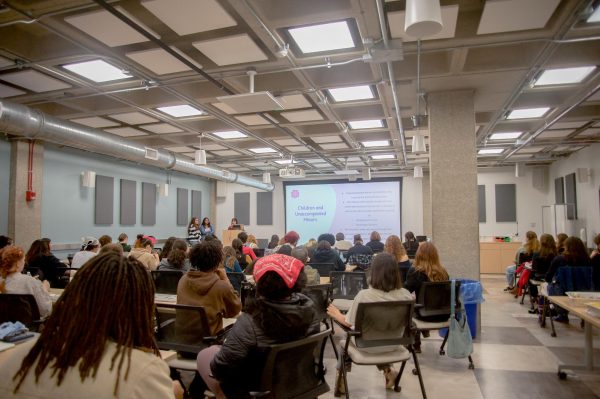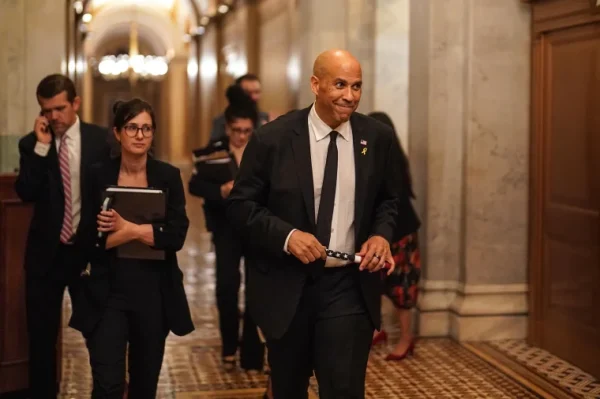Testimonies on Being Asian in Oberlin
In the aftermath of the Atlanta spa shootings, social media has been inundated with the words #StopAsianHate. I was in a state of shock. I had never seen something so horrific happen to Asian Americans in my lifetime; I had also never seen my classmates express pro-Asian sentiments. I was similarly bewildered the prior week, when Oberlin and some of my prospective graduate schools sent out messages condemning anti-Asian violence. The timing was random. There have been nearly 4,000 documented hate crimes against Asians in the past year. As soon as the pandemic got serious about 13 months ago, school kids from Oberlin started jeering at me and my Asian girlfriends, coughing mockingly. We were in no meaningful way represented by the Presidential Initiative, despite former President Trump coining terms like “kung flu” and instigating hate crimes against Asians nationwide. Most egregiously, the Sinophobia in American news coverage on China, and the general lack of interest in the tragedies occurring in Hong Kong and Xinjiang, has offered me little evidence of genuine concern for Asian lives.
The disparity between how Asians are treated generally and, right now, performatively, drove me to write this article. I interviewed five Oberlin students and alumni, each of whom are from different Asian backgrounds. I hope by reading their thoughts, we can better understand the discomfort, alienation, and racism that our Asian classmates have experienced.
Do you feel expected to behave in particular ways because of your Asian ethnicity? How do you find yourself reacting to that?
There was a common thread of alienation in responses to this question. Recent graduate Shomya Mitra, OC ’20, wrote, “My dad never taught me to speak Bengali when I was a child, so I have always felt like an ‘Oreo’ — dark on the outside, white on the inside.” Asian Americans and Asian immigrants are familiar with the identity “limbo” of being neither “American” nor “Asian.”
Another recent graduate, Dustin Lin, OC ’20, discussed the unhealthy impact stereotyping had on him growing up: “[American] portrayals of Asian men as meek, unfeeling or less traditionally masculine were stereotypes I noticed growing up. While I try to be aware of it, sometimes it is easy to fall into the trap of leaning into more regressive ideals of masculinity in order to counter that stereotype.” The pressure to be more masculine, by American metrics, puts pressure on Asian men to be “more aggressive,” just as it puts pressure on Black men to be “less aggressive.”
Assumptions about the meekness and “model minority” status of all Asians can have nefarious consequences. On top of isolation, exhaustion, and insecurity, Conservatory graduate Jumi Lee, OC ’20, described her unease residing in the United States: “As an international student, I’m not confident [whether] the country is really open for all races. It’s unfortunate that many Asians, including me, feel unsafe and [unsettled] being in the community. It has been many years that there are lots of racism and hate [crimes against Asians], and [I think] of it as a common situation. … I always feared someone might threaten or attack me, so sometimes I [have] to be very careful when I go on a walk or shopping.”
Do you feel your race impacts your personal and/or professional dynamics?
In academic settings, it is often assumed that Asians will be high-achieving. Dealing with this alongside stereotypes of submissiveness and passivity can complicate professional relationships. As recent grads in the beginnings of our careers, we can’t avoid people who make us feel uncomfortable. This was exemplified starkly in an experience shared by Mitra, who is of Indian descent. While working with prospective graduate school professors, who were both white and male, at a prestigious summer program, he was subjected to questions about his “exotic” appearance and background, as well as comments about his violin playing such as, “You know, you’re not playing the erhu … or the sitar, or whatever!”
Yuyu Ikeda, conservatory fourth-year, expressed frustration about U.S. college admissions policies, which have resulted in high-profile lawsuits against schools such as Harvard University, commenting “I think that Asian [Americans] grow up with a lot of pressure to succeed, and many times, Asians are indeed very accomplished or talented — so … admissions based on race works against us. It is hypocritical of many U.S. institutions because many times, they end up taking advantage of accomplished Asian students in order to promote their school, or for money.”
Personally, I have witnessed Oberlin students sexualize, exploit, and degrade Asian female staff members. Students complain about Asian staff members not making themselves available for 10 p.m. recordings or for performances only a few days away, all of which puts undue burden on the staff member. I have heard students wonder out loud how often some Asian female staff members have sex. I remember feeling particularly shocked when a classmate remarked off-handedly, “I think she likes working all the time, though.”
Nearly every Asian student I know on campus has experienced some kind of fetishization or predatory behavior. In the Conservatory, it is fairly common practice among Asian women to quietly share which of our colleagues have “yellow fever” — who should we avoid? Who should we fear?
Do you feel you have ever been discriminated against — overtly or covertly? Is it something you often discuss?
This was the question that most divided my interviewees. About half did not feel they had lost any academic opportunities due to their identity; the other half shared painful, even hateful, experiences. Mai, an Oberlin alum, who asked that their surname be omitted for privacy, wrote, “I experienced micro-aggressions every now and then, but it’s rare that I address it openly at the spot. In most cases, the people don’t even notice the harmful impact of these things, or have too much power over me, so I can’t do much about it.”
How can we address such a nuanced issue which is not statistically as violent as anti-Black racism nor as persistent as anti-Latinx or Islamophobic prejudices? America’s organized response should have begun before a tragedy like the Atlanta shootings took place — violence should not be a necessary qualifier for needing change, though that often seems to be the case. Anti-Asian racism already harms the Asian community. As mentioned above, U.S. college admissions policies discriminate against Asian students. Asian women struggle to be taken seriously, as popular culture fetishizes them. Median income statistics and headlines putting Asian Americans at the top of the food chain obscure the fact that Asians have the most rapidly growing income inequality in America. Lee described degrading names she has been called in the two years she lived in this country: “I was often called yellow, fried rice, pancake face, smelly, monkey, virus, ching chang chong, or whatever.”
Regardless, Asian students at Oberlin have used their shared experiences to form meaningful relationships. Lin commented, “Being a second generation immigrant has allowed me the opportunity to bond with some of my closest friends. We were not quite American but not quite un-American.” On campus, students often divide themselves on the basis of identity. We feel safest with people who understand us. Yet, if we are to overcome biases and divisions, I believe there is no better way than to accept each other’s individuality. Every person is an amalgamation of their cultural heritage, their personality and quirks, and their experiences. Individuals should be defined not by the beholder, but by themselves.
One phenomenon I have studied as a Psychology major is that simply being aware of our biases does not impact our behavior. It is a much more complex task than social media makes it seem. But we can still act. We can listen. Please read these testimonies, please take them to heart. If you find yourself talking over an Asian classmate, stop talking and ask yourself why. Call out yellow fever. Even if you love Asian culture and entertainment, understand that you may be unintentionally fetishizing Asians. Email the Office of the President to get pro-Asian programming incorporated into the Presidential Initiative.
It may be challenging to change our internal biases but basic, concrete actions, we can do. I hope, today, we can all do one thing to honor our Asian classmates and Xiaojie Tan, Daoyou Feng, Hyun Jung Grant, Soon Chung Park, Suncha Kim, and Yong Ae Yue.



